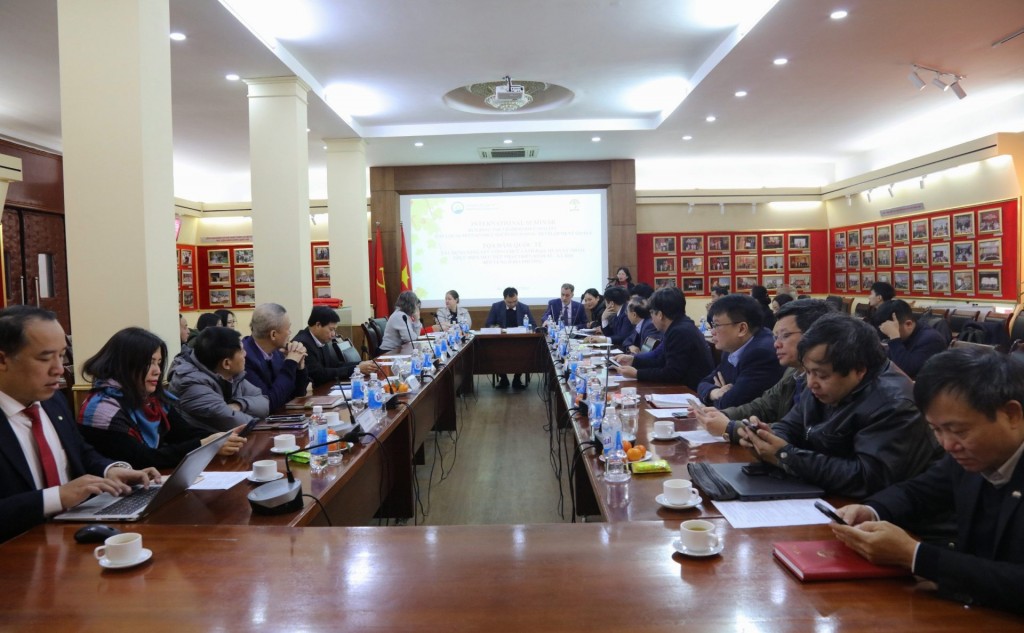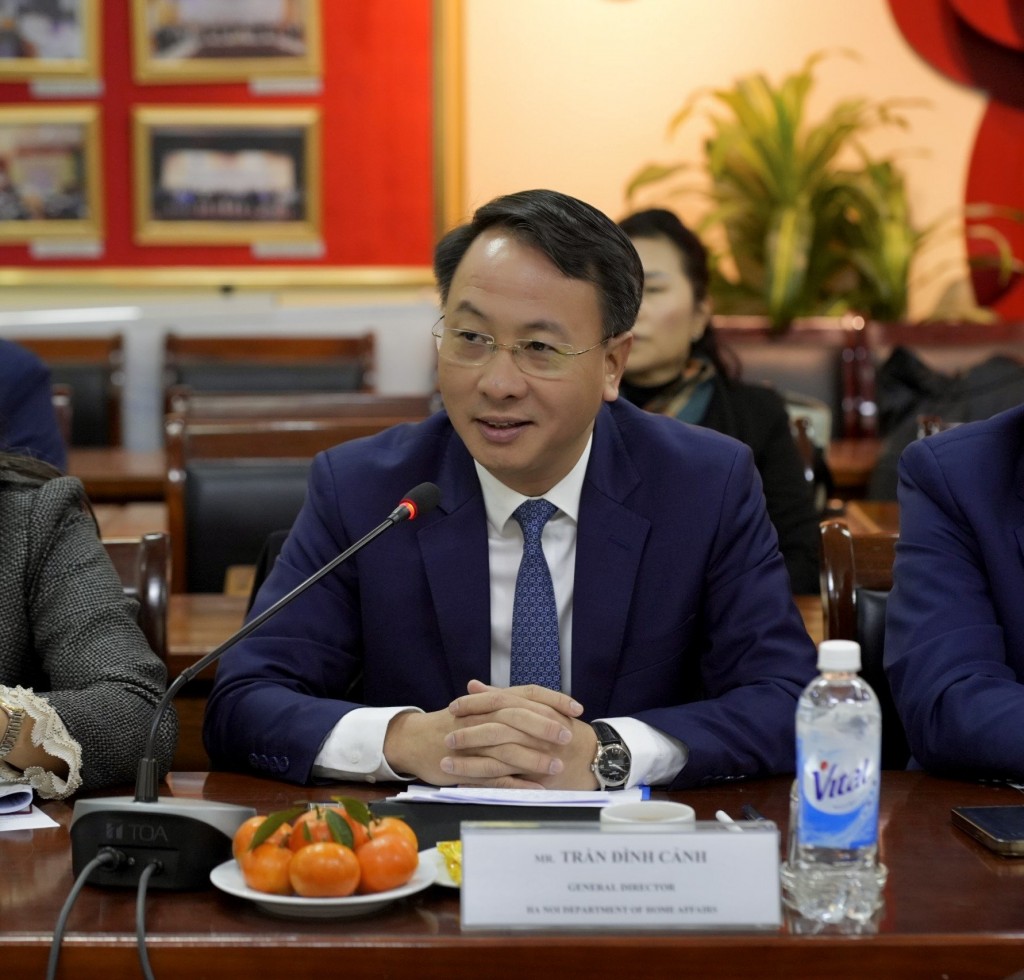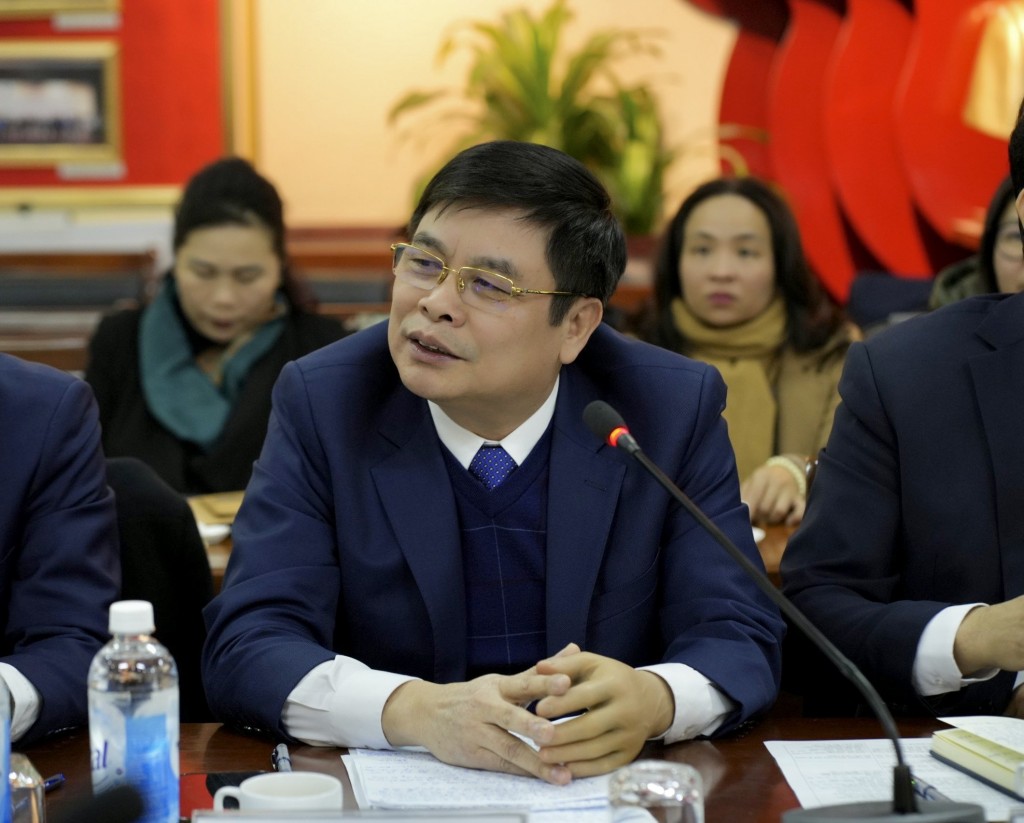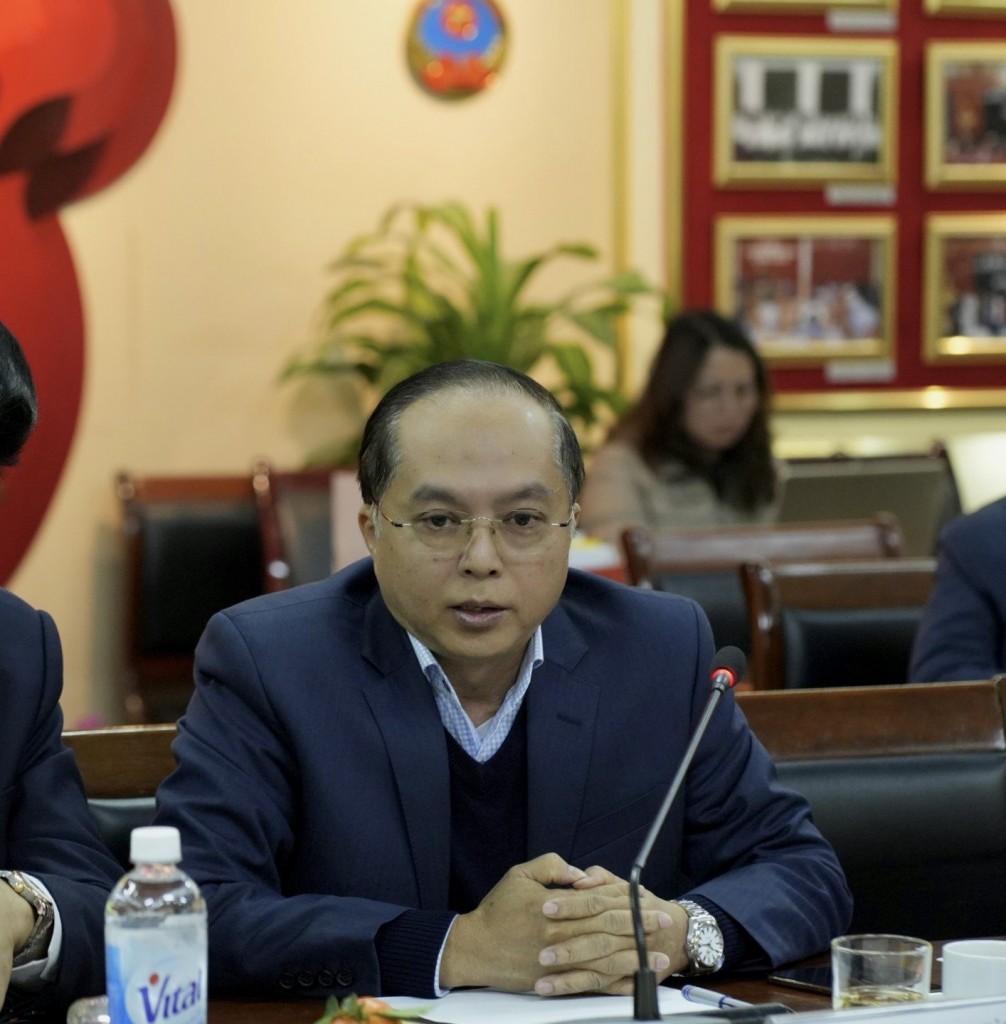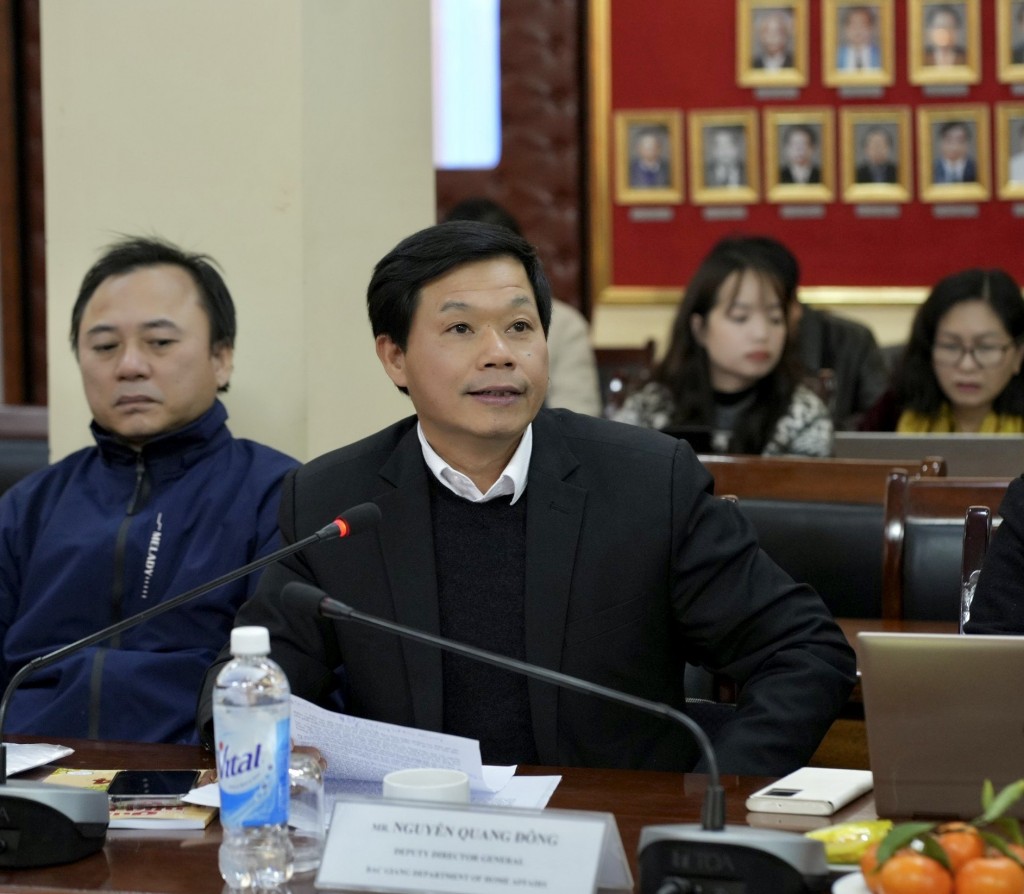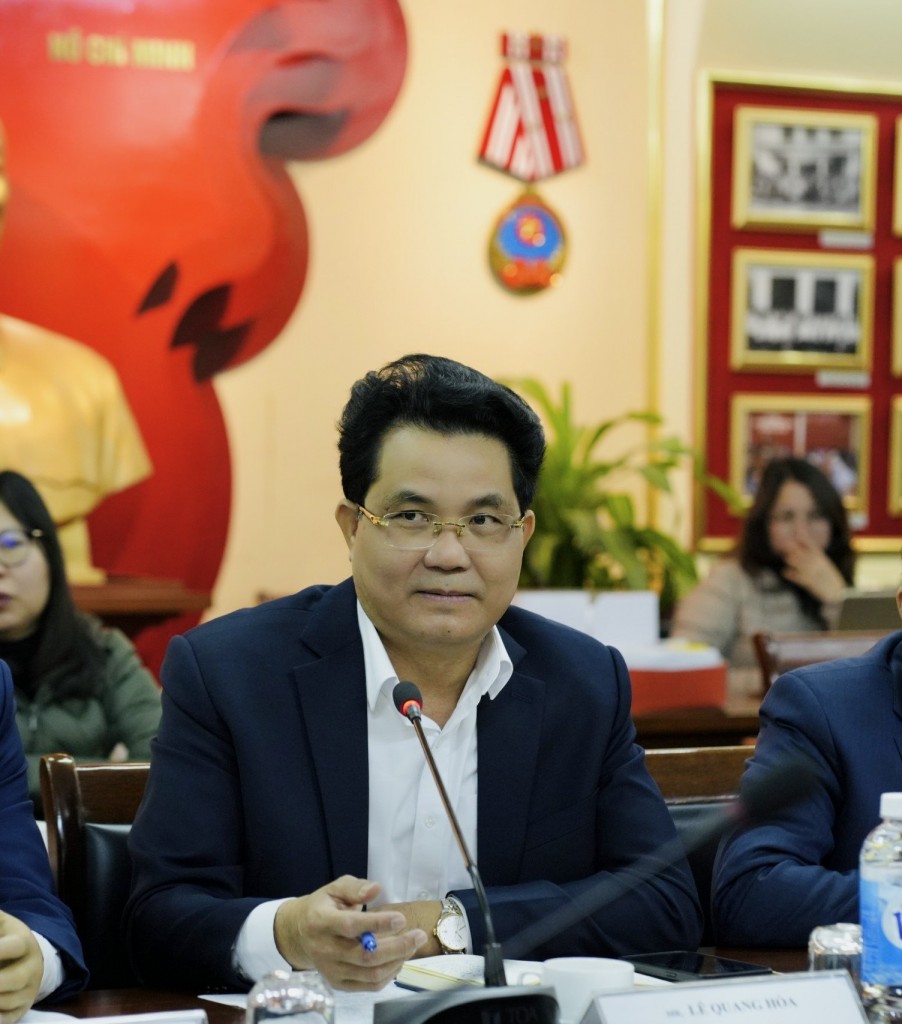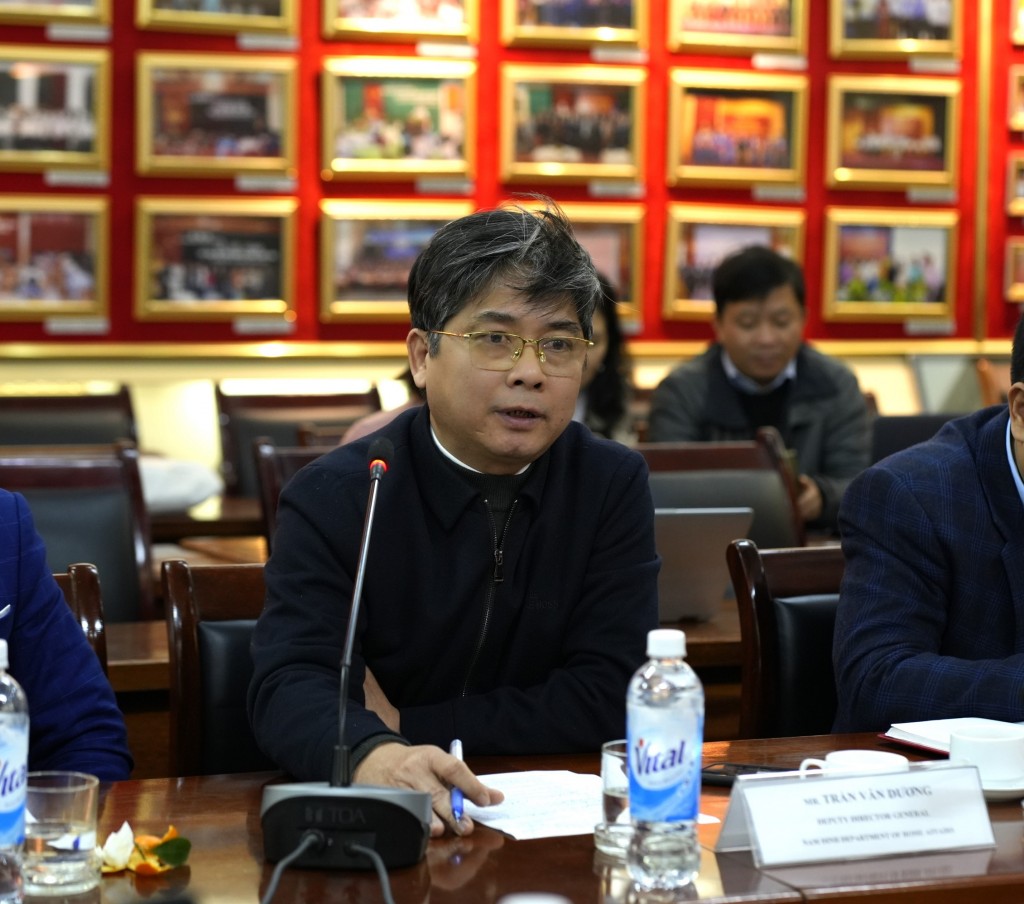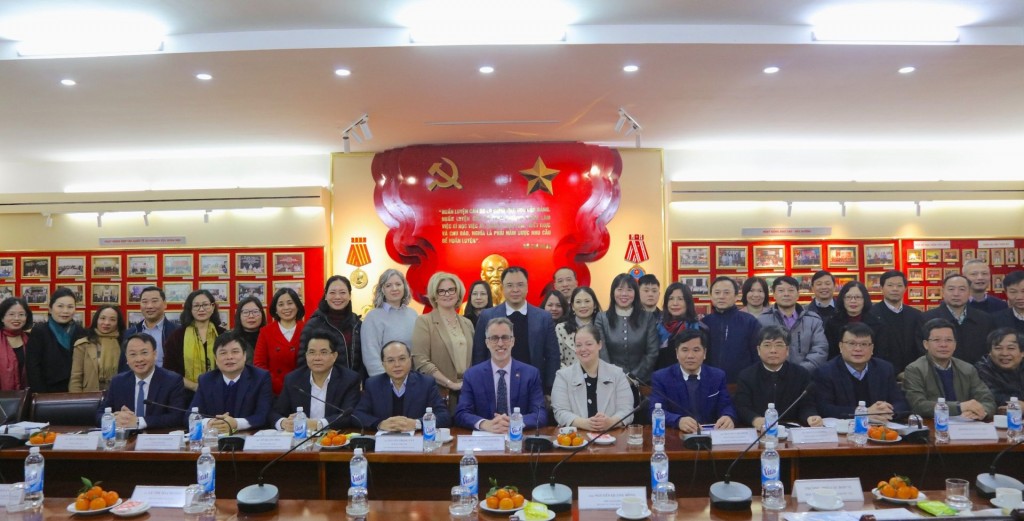On the morning of January 25th, 2024, the National Academy of Public Administration (NAPA) and the Canadian Bureau for International Education co-organized the International Seminar “Building the leadership capacity for local sustainable socio-economic development goals” at NAPA Headquarters in Hanoi. Assoc. Prof. Dr. Nguyen Quoc Suu – Vice President of NAPA, and Mme. Larissa Bezo, President of CBIE, co-chaired the Seminar.
Participants in the Seminar from the Embassy of Canada consisted of Mr. Brian Allemekinders – Counsellor, Head of Cooperation, and Mrs. Le Thi Mai Huong – Cooperation Officer. Representatives from CBIE were Mme. Karen Dalkie – Vice President, and Mme. Tatiana Wojtan – Manager of Development and Partnership. Other attendees included leader representatives from provincial departments of home affairs and related branches from northern provinces and cities, representatives of NAPA faculties and departments, and NAPA staff.
On behalf of NAPA, Assoc. Prof. Dr. Nguyen Quoc Suu warmly welcomed the international delegates and experts attending the Seminar “Building the leadership capacity for local sustainable socio-economic development goals” jointly organized by NAPA and CBIE.
Assoc. Prof. Dr. Nguyen Quoc Suu emphasized that the Seminar aimed to identify the need to enhance the capacity of local leaders and managers to attain sustainable socio-economic goals effectively at localities. In pursuing these goals, organizers of the Seminar would like to listen to the opinions of international experts and leader representatives from provincial departments of home affairs about the following issues:
Firstly, the current economic development backgrounds of localities and the opportunities, challenges, and requirements for the leaders and managers during the sustainable socio-economic development at localities.
Secondly, the major priorities and breakthrough schemes at localities and local leaders’ role in implementing these schemes.
Thirdly, the identification of prioritized local leaders and managers for capacity enhancement.
Fourthly, the development of a preliminary competence framework for each leadership and management category that needs to be prioritized for capacity enhancement.
Fifthly, discussion on the actual situation of female leadership at localities, the proportion of women participating in leadership and management, and the difficulties women face when approaching leadership and management posts.
Sixthly, sharing experience from Canada and Viet Nam in enhancing capacity for local public leaders and managers and the cooperation possibilities in training and capacity building for local public leaders and managers between Canadian partners, the Ministry of Home Affairs of Viet Nam, NAPA, and the Vietnamese localities.
Mme. Larissa Bezo – CBIE President and CEO, expressed her joy and honor to co-organize the international Seminar. CBIE had coordinated with NAPA to survey localities’ training demands, which is the basis for developing project proposals in line with local needs. During their working schedule from January 18th to 26th, 2024, in Viet Nam, the CBIE delegation worked with the Ministry of Home Affairs, NAPA, and NAPA regional branch campuses in Central Viet Nam and Ho Chi Minh City, and the provincial departments of home affairs in Hue City and Ho Chi Minh City. Mme. Larissa Bezo hoped that the practical exchanges from the Directors and Deputy Directors of the Departments of Home Affairs of the Northern provinces of Viet Nam, international experts, and leaders and lecturers of the Academy would improve NAPA’s capacity in developing and organizing the training programs for local public leaders and managers.

Mr. Brian Allemekinders – Counsellor, Head of Cooperation, Embassy of Canada in Viet Nam, speaking at the Seminar.
Speaking at the Seminar, Mr. Brian Allekinders, Counselor, Head of the Development Cooperation Department, Embassy of Canada in Viet Nam, showed high appreciation and expectation toward the cooperation possibility in developing and implementing leadership training programs between CBIE and NAPA, at the same time, emphasizing the critical importance of Viet Nam in Canada’s Asia-Pacific development policy and strategy to ensure the regional and international stability for development. He also affirmed the Canadian Government’s commitment to accompanying and supporting Viet Nam in cooperation programs for sustainable development while facing challenges in global integration.
During the Seminar, delegates from the provinces provided information about the socio-economic backgrounds, demands for capacity building for public leaders and managers, and opportunities, difficulties, challenges, and shortcomings in local governance. Their opinions raised an urgent, essential, and long-term requirement of strengthening the training of cadres, civil servants, and public employees to promote the effectiveness and efficiency of governance, aiming at sustainable socio-economic development in the localities. The priority group of leaders and managers who need to improve capacity includes key public leaders at the provincial level, district-level leaders, departments, divisions, and branches, and officials at department, commune, and ward levels.
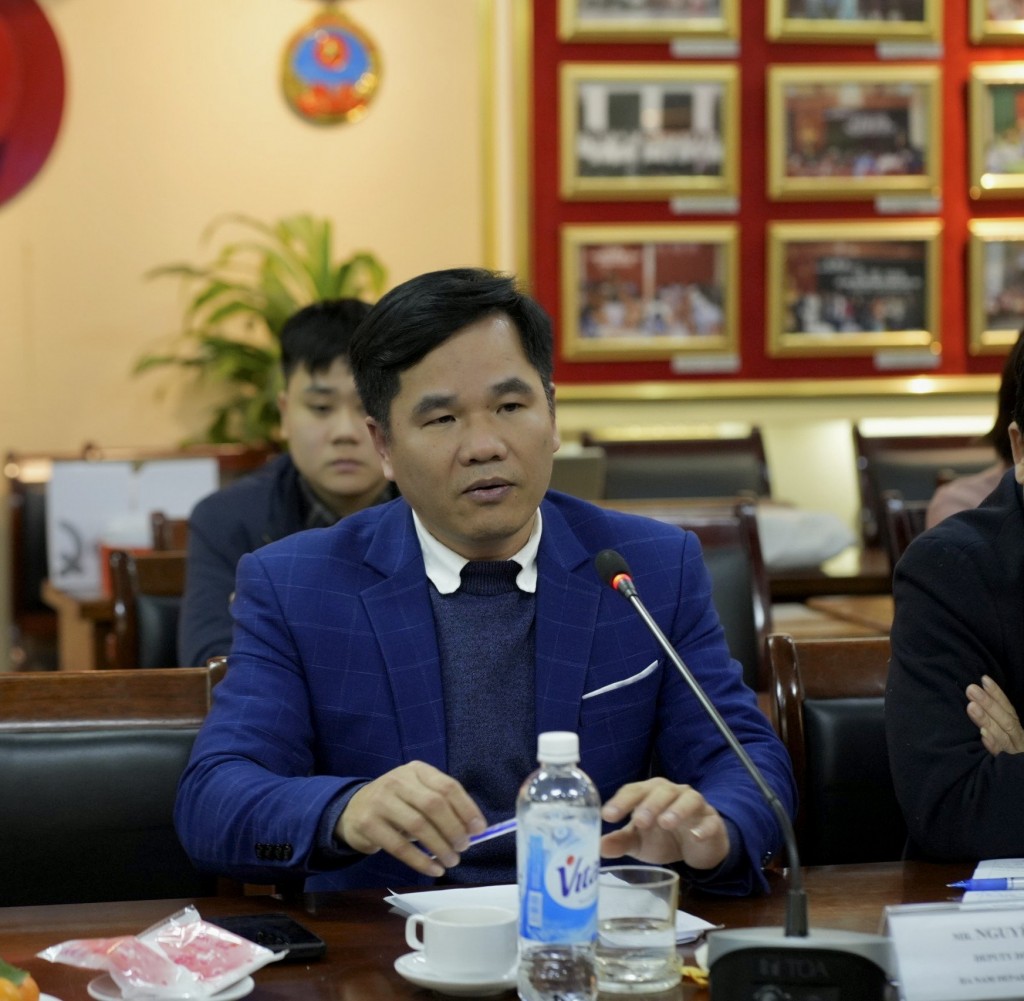
Mr. Nguyen Quang Minh – Deputy Director of Ha Nam Department of Home Affairs, speaking at the Seminar.
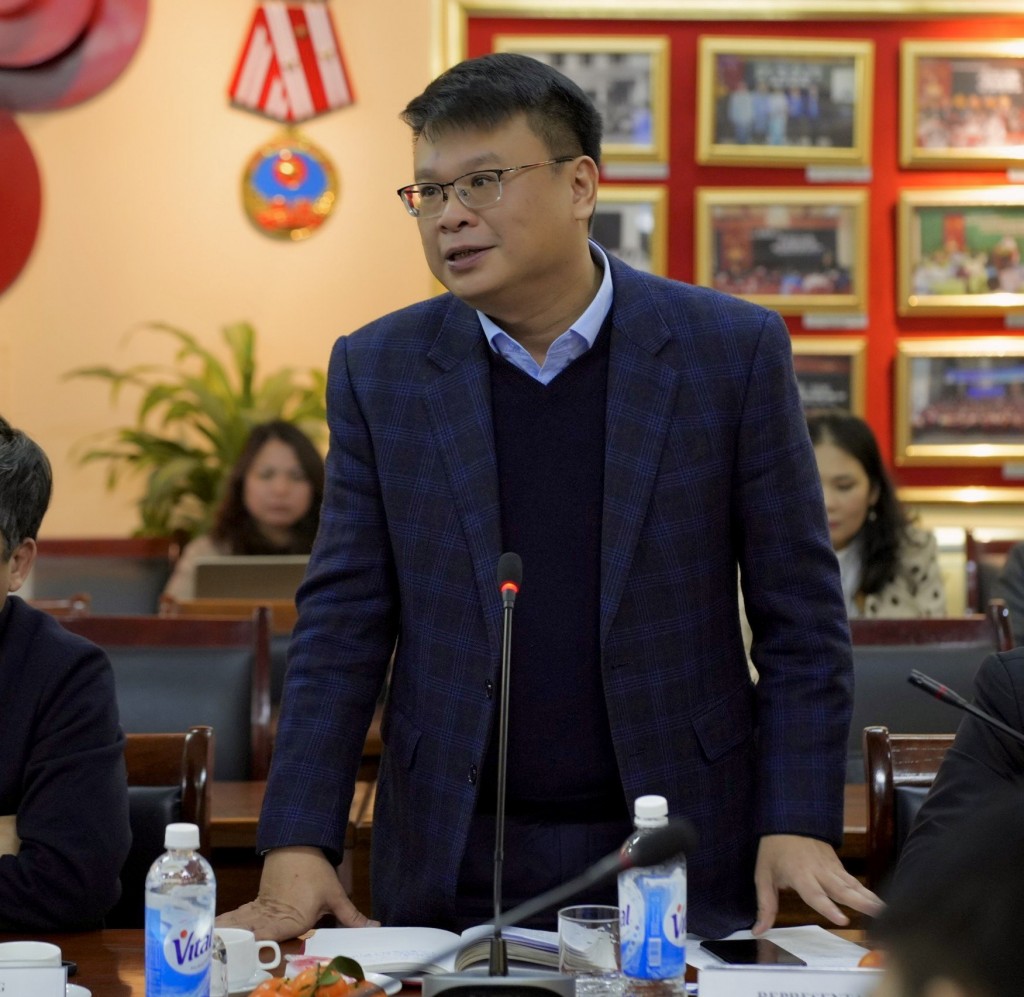
Mr. Bui Huy Tung – Director, Department of Refresher Training Management, NAPA, speaking at the Seminar
Voices raised at the Seminar agreed that the implementation of training must uphold the sense of publicity, fairness, competitiveness, and accuracy in targeting the proper subjects and meeting the actual demands of the localities. The content of training should focus on developing thinking and vision for strategic planning, institutions, and policies design; local governance and management; new updates in building e-government and digital government; soft skills development and upgrade; application of new science and technology in management and problem-solving; training young officials and female officials; in-depth knowledge to develop a quality human resource that directly serves the socio-economic development goals towards sustainable development in each locality and the whole region.
Concluding the Seminar, Assoc. Prof. Dr. Nguyen Quoc Suu highly appreciated and thanked CBIE for their efforts and collaboration and the Embassy of Canada’s assistance in organizing the Seminar. Vice President Nguyen Quoc Suu particularly thanked the Directors and Deputy Directors of the Departments of Home Affairs from northern provinces of Viet Nam who had enthusiastically participated in and exchanged opinions at the Seminar. The information exchanged in favor of local practices and international experience sharing had brought about meaningful insights that help to define the demands, targets, contents, and requirements of training programs for public leaders and managers to effectively attain the socio-economic goals in Viet Nam’s localities in the upcoming time.


